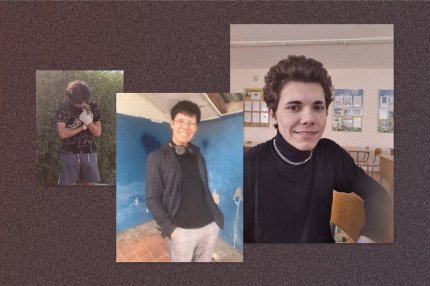An 18-year-old Ukrainian teenager, Oleksandr Yakushchenko, who was kidnapped by an aggressor country from an orphanage in Kherson, committed suicide after ending up with a foster family in the Krasnodar Territory.
Points of attention
- Oleksandr Yakushchenko, a Ukrainian teenager abducted from Kherson by Russia, committed suicide in Russia due to rejection and lack of support in his foster family.
- The tragic event sheds light on the negligent treatment of the teenager by his adoptive parents and the serious consequences faced by children under pro-Russian authorities.
- The orphanage in Kherson, controlled by pro-Russian authorities, faced severe repercussions after the abduction of children, including Oleksandr Yakushchenko.
- Details of Yakushchenko's suicide reveal his feelings of being unwanted in his adoptive family and the dire circumstances that led to his untimely death.
- The story unravels the forced relocation of Yakushchenko and other children to Russia from a family-type orphanage in Kherson and the subsequent challenges they encountered in a foreign environment.
What is known about the reasons for the suicide of a Ukrainian teenager abducted by Russia from Kherson?
According to RosZMI, before his death, the teenager sent a voice message to friends.
A man from Oleksandr Yakushchenko's adoptive family said that the teenager's body was found a few kilometers from his new home.
"How do I know why? He was 18 years old, he was an adult child," his new adoptive father cynically answered the question about the reasons for the Ukrainian teenager's suicide.

Meanwhile, in a voice message to friends, Yakushchenko explained that he felt unwanted in his adoptive family.
"Nobody needs me there. They made me understand that. I'm ruining everyone's lives. I can't do it, I'll hang myself... If I weren't here, no one would have any problems, if only I hadn't come here," the guy said before committing suicide.
How a Ukrainian teenager was forcibly taken to Russia
Until the fall of 2022, Yakushchenko and 7 other children lived in a family-type orphanage in the village of Tokarivka near Kherson.
During the occupation of the Kherson region by the criminal army of the Russian Federation, the head of the orphanage, Lidia Sharvarly, began to cooperate with the pro-Russian authorities, and she was soon appointed head of the village.
After the territories of the Kherson region were returned to the control of Ukraine, Sharvarly left for the aggressor country and took her children with her.
In Russia, the children were placed in a temporary shelter in the village of Kuchugury, Krasnodar Territory, where Sharvarly refused custody.
Oleksandr Yakushchenko ended up in the foster family of Natalia and Aleksandr Lukashenko.
The latter noted that formally the boy was under their care for only a month before he came of age, and after that they simply provided him with housing and food, because he had no other place to live.
What is known about Russian crimes against kidnapped Ukrainian children from Kherson
According to President Vladimir Zelensky, during the retreat from the occupied territories in the Kherson region 2 years ago, Russian war criminals kidnapped 48 Ukrainian children, and not a single child was even 3 years old.
Most of these abducted children were transported to occupied Crimea and Russian territory.
Ukrainian children are not toys, although it seems that for Russian rich people and officials this is exactly the case. Behind each of these children is a life that should not be lost. A destiny that must not be lost. We must do everything to ensure that Ukrainian children return home. Thanks to the partners who work with us in this direction and help,” Zelensky notes.




